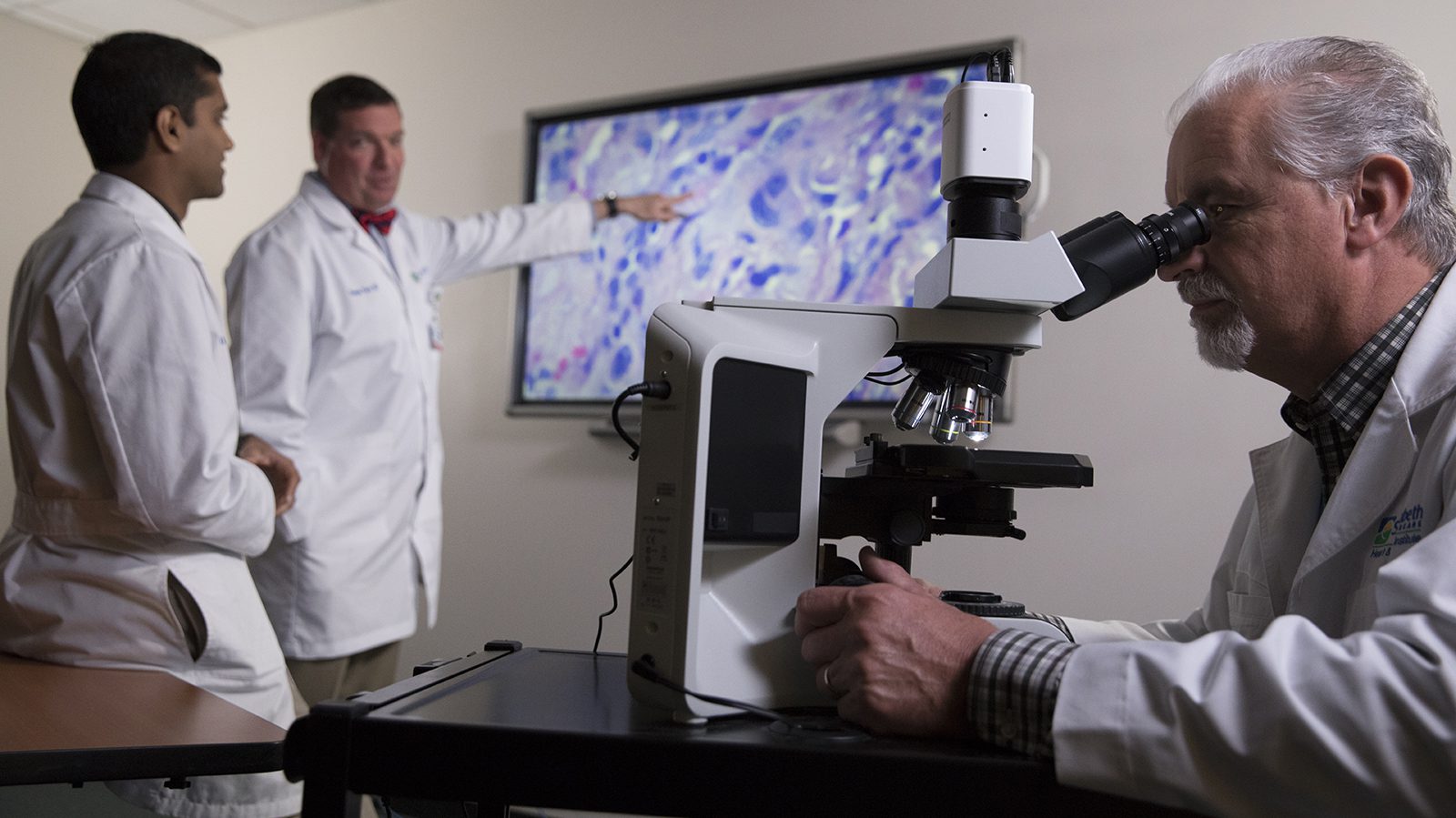Primary Peritoneal Cancer
Primary peritoneal cancer is a very rare cancer that starts in the lining inside of the abdomen (peritoneum). The peritoneum covers all of the organs in the abdomen and acts as a barrier to infection. Although other cancers may spread to the peritoneum, primary peritoneum cancer is very different.
Causes of Primary Peritoneal Cancer
The cause of primary peritoneal cancer is unknown. The risk of developing it is higher if you have any of the known risk factors.
Risks Factors for Primary Peritoneal Cancer
Some people who get primary peritoneal cancer have a specific mutation in their DNA that increases their risk of getting primary peritoneal cancer. Our hereditary cancer program can provide important information to you and your family. This information can help us identify cancer early when it is most treatable and plan your treatment.
Primary peritoneal cancer is associated with the following risk factors:
- Age.
- Family history of primary peritoneal or ovarian cancer.
- Gender.
- Genetic mutations in DNA, including BRCA1 and BRCA2.

Make an appointment
For more information, please contact your oncologist or the Cancer Care Center at (859) 301-2237, option 2.
Symptoms of Primary Peritoneal Cancer
Most early stage primary peritoneal cancer will have no symptoms. The symptoms of advanced primary peritoneal cancer include:
- Abdominal discomfort or pain.
- Constipation.
- Feeling of fullness, even before you finish eating.
- Frequent urination.
- Irregular vaginal bleeding.
- Loss of appetite.
- Nausea.
- Rectal bleeding.
- Shortness of breath.
- Unexplained weight gain or loss.
Diagnosis of Primary Peritoneal Cancer
If your doctor suspects that you have primary peritoneal cancer, we will run tests to determine the type of cancer and develop the best treatment plan. These tests may include:
- Biopsy
- Blood tests to check genetic makeup and blood markers
- CT scan
- Gastrointestinal radiographic X-ray
- MRI
- PET/CT scan
- Ultrasound
If you’ve been diagnosed with primary peritoneal cancer, we can provide a second opinion and present treatment options.
Treating Primary Peritoneal Cancer
At St. Elizabeth Healthcare, we believe in caring for you, not just treating your cancer. Our holistic approach means we combine cancer treatment with working to minimize side effects and help you manage them. Our goal is to make you as comfortable as possible while we use innovative approaches to treat your cancer.
Your treatment plan for primary peritoneal cancer will depend on the stage of your cancer and whether it has spread, your treatment may include:
Preventing Primary Peritoneal Cancer
We do not yet know how to prevent primary peritoneal cancer. Experts believe you can lower your risk of getting primary peritoneal cancer by having a healthy lifestyle, including:
- Avoid smoking.
- Eat a healthy diet.
- Limit alcohol intake.
- Exercise regularly.
Your Cancer Care Team
The team includes medical oncologists specializing in immunotherapy and precision medicine, surgical oncologists, radiation oncologists, interventional radiologists, thoracic surgeons, pain management specialists, genetic counselors, pathologists, nutritionists, pharmacists, nurses and support staff. They work together to create a treatment plan that’s just right for you.


